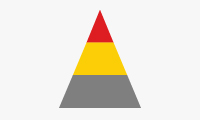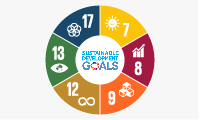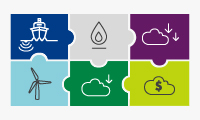Access to energy
Globally, around 1.1 billion people have no electricity and a billion more only have access to unreliable and unsafe power networks. Nearly 3 billion people rely on solid fuels for cooking.
Reliable and safe energy enables economic and social development, and improves the health, education and livelihoods or people around the world. Energy access plays an important role in achieving the UN's sustainable development goals, in particular goal 7 "Ensure access to affordable, reliable, sustainable and modern energy".
Our New Energies business is pursuing commerical opportunities to provide energy to those who have insufficient access to it. Access to energy is also one of our three global social investment themes through which we aim to provide access to reliable, affordable and cleaner energy, to spur socio-economic progress in local communities.
In Myanmar, we worked with PACT, a non-profit organisation, to provide access to sustainable energy for around 20,000 people in 2017. We have improved the livelihoods of around 35,000 people since the start of the programme in 2015.
Renewable energy committees were set up in 76 villages to train people to install and maintain solar power systems in their homes, and to manage renewable energy funds that provide initial capital to purchase the solar power systems.
In 2017, we piloted a fund to encourage our teams to work with local partners to design and implement small local energy access projects using a sustainable community business model. The fund has so far supported four projects and will monitor their success during 2018.
We continued to support our partner The Global Alliance for Clean Cookstoves with its activities in India, China and Nigeria. In China, we sponsored activities to help cookstove manufacturers expand into international markets and share best practices with partners abroad. We also supported the Alliance in Nigeria, where we sponsored a workshop in Lagos in 2017, to help clean cooking enterprises improve their business plans and attract more funding. Thirty-four participants from 11 states in Nigeria attended the workshop. We continued to support the Alliance’s Spark Fund, which provides growth capital and capacity development to help cookstove enterprises reach commercial viability. By the end of 2017, the Alliance and its partners had distributed an estimated 80.9 million clean or efficient stoves and fuels, and are on track to exceed their goal of reaching 100 million households by 2020.
In addition, we support access to energy through the All On programme and initiatives of Shell Foundation globally.
 Sustainability at Shell
Sustainability at Shell
 Sustainable development goals
Sustainable development goals
 About our data
About our data
 Energy transition and climate change
Energy transition and climate change